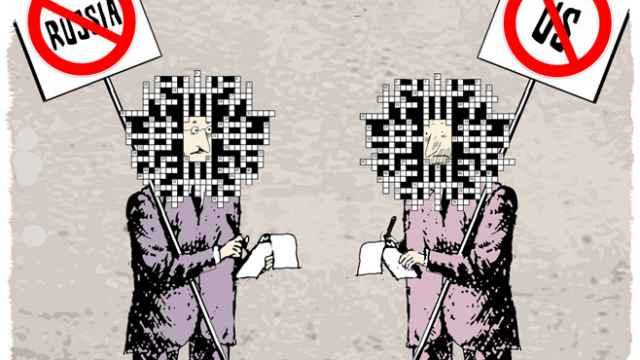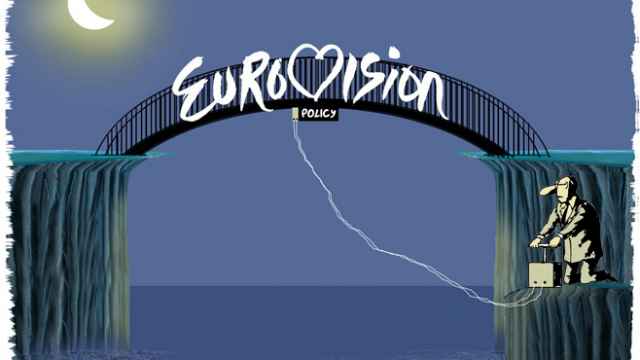If journalism thrives on controversy, the inherent pessimism of newspaper headlines can be attributed to the fact that media outlets are instinctively drawn to reporting the negative.
It is therefore understandable that I embarked on my first research trip to my native Georgia with a healthy dose of skepticism. Apart from a brief visit to perform at the Iavnana Foundation charity gala concert in March 2012, I had not set foot in my motherland in almost a decade.
This time around my expectations were blurred, while preconceptions based on media coverage and word of mouth were less than inviting. Regardless, there was no turning back, and with research questions in hand, I boarded the trans-Atlantic flight in New York and crossed my fingers for a productive journey ahead.
Culture shock paired with traditional jet lag were two of the things that caught me off guard once the plane landed at Tbilisi International Airport. Not quite fitting in as a full-fledged citizen, during the first few days of my stay in the Georgian capital I felt more like a tourist in disguise.
From a heated argument that erupted in a local bank refusing to return my credit card, which was captured by a faulty ATM machine until I spoke to the general manager (who turned out to be a friend of my cousin's), to a misunderstanding with the security guard outside the Ukrainian Embassy who yelled at the top of his lungs when I tried to photograph the building from across the other side of the gate, somehow the rules that I had been accustomed to no longer applied to my once-native country two decades later.
With no choice but to give in to the new reality, I decided to make an effort for at least the month of my stay and do things the Georgian way. Little did I know how much easier life would get for me once I shed my Western mentality and returned to my roots.
One after another, a whole selection of myths I had unconsciously bought into were being dispelled. "Corruption has vanished in Georgia," our media outlets had long proclaimed. Of course, one could interpret the word "corruption" in a million different ways. But the truth of the matter is that while petty corruption seems to have disappeared, bureaucracy has created its own "legalized" version of corruption that comfortably hides behind an official corporate mask.
Perhaps the best surprise, at least on a personal note, was the gradual realization that so-called "anti-Russian sentiment" seems to be limited to politics and politicians. These days, Russian tourists appear to be in abundance and hearing the Russian language throughout Tbilisi is far from unusual.
While the generation that came of age in the aftermath of the five-day war of 2008 was directly impacted by post-war anti-Russian propaganda, the overall sentiment of Georgians toward Russians is no longer synonymous with the nation's feelings toward the Russian government.
"Putin is not the embodiment of all of Russia," a well-known sociologist told me when confronted with the rapid disappearance of the study of Russian language and literature in Georgia. "Reading Tolstoy and Dostoevsky should not be seen as us giving into the Russian invaders."
It is no wonder that Georgia is still a tourist haven — a unique country with immense potential.
A guest in Georgia is nothing more than a king for a day, a week or even a month, but an immigrant visiting the native land as a tourist is considered a traitor.
Asking for street directions in fluent Georgian made little sense to the natives, as some eyed me with curiosity while others openly accused me of betraying my country for a better life abroad.
As a mini-experiment, I spent one afternoon out on the town speaking nothing but Russian — asking for directions, ordering food in a local restaurant, buying coffee "to go" and even sending a parcel to New York from the post office — all in Russian.
The contrast was staggering, and suddenly the legendary Georgian hospitality came to life right in front of my eyes. Perhaps that's the secret to a happy life as an immigrant in Tbilisi?
Throughout my month-long research trip, I had the opportunity to meet some of the brightest minds of the Soviet era, the generation of my parents and their parents who possess both wisdom and an ultramodern outlook on life and our reality.
I lament the fact that this generation of truly brilliant minds and exceptional talents is slowly but surely fading into the distant past.
Although there is a generation of incredibly smart, innovative and highly gifted individuals who are coming of age and gradually molding the new Georgia with promising prospects for tomorrow, they are few and far between.
Apart from an abundance of fascinating material for my own senior thesis research on Georgian identity in the post-Soviet era, I left Tbilisi with a glimmer of hope — perhaps more so this time than on previous visits over the past two decades since my emigration.
No matter what the threatening headlines proclaim, the view from the outside looking in is never quite as clear and accurate as the view from within. I left Georgia with not only a sudden glimmer of hope for a better tomorrow, but more so, an urge to return for another visit.
Tinatin Japaridze is a Georgian-born, Russian-bred Columbia University student currently studying cultural psychology and Russian studies.
A Message from The Moscow Times:
Dear readers,
We are facing unprecedented challenges. Russia's Prosecutor General's Office has designated The Moscow Times as an "undesirable" organization, criminalizing our work and putting our staff at risk of prosecution. This follows our earlier unjust labeling as a "foreign agent."
These actions are direct attempts to silence independent journalism in Russia. The authorities claim our work "discredits the decisions of the Russian leadership." We see things differently: we strive to provide accurate, unbiased reporting on Russia.
We, the journalists of The Moscow Times, refuse to be silenced. But to continue our work, we need your help.
Your support, no matter how small, makes a world of difference. If you can, please support us monthly starting from just $2. It's quick to set up, and every contribution makes a significant impact.
By supporting The Moscow Times, you're defending open, independent journalism in the face of repression. Thank you for standing with us.
Remind me later.







